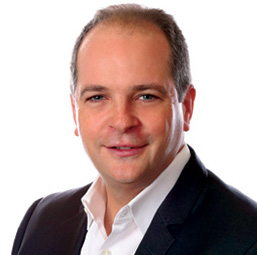ResMed: ‘We have clear path to double-digit growth’
By Liz Beaulieu, Editor
Updated 10:55 AM CDT, Fri April 30, 2021
 SAN DIEGO – The odds were against ResMed in a number of ways in the third quarter of fiscal year 2021, but the company expects a rebound in the next several quarters.
SAN DIEGO – The odds were against ResMed in a number of ways in the third quarter of fiscal year 2021, but the company expects a rebound in the next several quarters.
ResMed’s third quarter is typically slower due to insurance deductibles resetting in March, then the company faced a tough comparable – it generated $35 million in COVID-related revenues in the same quarter last year that haven’t been sustained.
“As we look further forward, we see a clear path to double-digit revenue growth in the back half of our fiscal year 2022 across our full business, powered by opening economies and our pipeline of new technology and innovation,” said Mick Farrell, CEO, during an April 29 conference call to discuss financial results.
ResMed reported revenue of $768.8 million for the third quarter of fiscal year 2021 compared to $769.5 million for the same quarter for the previous year. Excluding incremental COVID-19 related revenue from the previous year, revenue increased 1% on a constant currency basis.
The company also took a reserve of $255 million in the third quarter to potentially resolve a long-running dispute with the Australian Tax Office – a big reason why it reported a net loss of $78.5 million for the quarter.
“We believe resolving these discussions is the pragmatic thing to do,” Farrell said, “so that we can put this behind us and focus all of our efforts on our mission of improving lives in respiratory medicine around the world.”
Finally, patient flow for CPAP therapy is improving but still hasn’t returned to pre-COVID-19 levels, resulting in a 10% decrease in revenues for devices globally and a 2% decrease in the U.S., Canada and Latin America in the third quarter. Revenues for masks and accessories, however, saw a 4% increase globally and 7% in the U.S., benefitting from an existing patient base.
“I do think that we are moving well toward the 90% range in some states (for recovered patient flow) and 80% in some other states,” Farrell said. “Every period we look at, we see improvement.”
Increasing vaccination rates in the U.S., along with more economies reopening, are two big reasons why ResMed expects patient flow and growth to recover as the year goes on. Another reason: the upcoming launch of the company’s next generation CPAP device, the AirSense 11, which it says is smaller, quieter and more “cloud connected.”
“We are confident that as we get the AirSense 11 from control product launch to then start rolling that out over this calendar year in the U.S. market, that will be a catalyst for growth,” Farrell said. “It brings not only the hardware but also amazing software solutions for patients, physicians, providers and others.”
Also discussed on the call:
On Philips’ decision to repair or replace its first-generation DreamStation CPAP devices due to possible risks to users from unapproved cleaning methods: “We actually don’t have this problem that has been reported by competitors,” said Rob Douglas, president and COO. “We have a different design using different materials. We have an aggressive testing procedure looking at this. We have a sophisticated complaint system and across our 40 million installed base, this is just not there at all.”
On its recent acquisition of Citus Health, which provides a digital and mobile platform that enables real-time, secure collaboration between patients, care teams and family members: “We are excited to have the Citus team as part of the ResMed family of solutions and to leverage their digital collaboration and patient support platform in our mission to improve our patients’ lives outside of the hospital,” Farrell said.
Comments